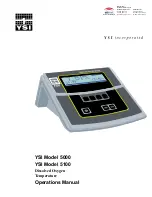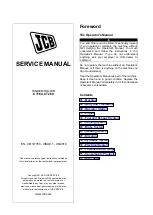
Neuromuscular transmission
NMT cautions
CAUTION
Always stop the NMT measurement before handling the
stimulating electrodes.
CAUTION
Never subject a patient with an implanted electronic device to
electrical stimulation without consulting a medical specialist
first.
CAUTION
If used in close proximity to shortwave or microwave therapy
equipment, stimulator output may become unstable.
NMT measurement limitations
●
This measurement is not available in the NICU software package.
●
NMT measurement is not indicated for pediatric patients weighing less than 5
kg (11 lbs).
●
Pediatric MechanoSensor is validated for children weighing 5 to 20 kg (11 to 44 lbs).
●
Electrosurgery may cause incorrect measurement results.
●
NMT measurement is not indicated for patients with known abnormal function of
neuromuscular junction.
NMT points to note
●
Start monitoring before the administration of a muscle relaxant drug (but after the
induction of sleep in general anesthesia) to prevent voluntary muscle contraction
and tension from interfering with the reference search.
●
When placing the electrodes, make sure that they do not touch each other.
●
Do not place electrodes on areas with excessive body hair or lesions.
●
If the electrodes are placed incorrectly, wrong nerves are stimulated and this
causes wrong muscle response.
●
When multiple nerves are stimulated, the measured response may be affected
by electrical activity of other muscles.
●
If the stimulation electrodes are placed very close to the palm of the hand, the
muscles are stimulated directly by the stimulation pulses.
●
Do not apply stimulation across or through the head, directly on the eyes, covering
the mouth, on the front of neck (especially over the carotid sinus), or from electrodes
placed on the chest and the upper back or crossing over the heart.
●
If the current is too strong, it may stimulate the muscles too much.
●
Moving or touching the patient during measurement may cause incorrect results.
●
For safe extubation, the TOF% should be higher than 90. Also assess other clinical
signs.
Checking the NMT measurement
1.
Always check the electrode quality.
362
CARESCAPE Modular Monitors
2062971-001
Summary of Contents for CARESCAPE
Page 38: ...38 CARESCAPE Modular Monitors 2062971 001 ...
Page 114: ...Setting up the monitor before use 114 CARESCAPE Modular Monitors 2062971 001 ...
Page 146: ...Alarms 146 CARESCAPE Modular Monitors 2062971 001 ...
Page 218: ...Pulse oximetry 218 CARESCAPE Modular Monitors 2062971 001 ...
Page 234: ...Non invasive blood pressure 234 CARESCAPE Modular Monitors 2062971 001 ...
Page 260: ...Temperature 260 CARESCAPE Modular Monitors 2062971 001 ...
Page 274: ...Cardiac output 274 CARESCAPE Modular Monitors 2062971 001 ...
Page 280: ...Mixed venous oxygen saturation SvO 280 CARESCAPE Modular Monitors 2062971 001 ...
Page 338: ...Patient Spirometry 338 CARESCAPE Modular Monitors 2062971 001 ...
Page 372: ...Neuromuscular transmission 372 CARESCAPE Modular Monitors 2062971 001 ...
Page 404: ...Laboratory data 404 CARESCAPE Modular Monitors 2062971 001 ...
Page 410: ...Calculations 410 CARESCAPE Modular Monitors 2062971 001 ...
Page 416: ...Drug calculations 416 CARESCAPE Modular Monitors 2062971 001 ...
Page 424: ...Trends 424 CARESCAPE Modular Monitors 2062971 001 ...
Page 432: ...Snapshots and events 432 CARESCAPE Modular Monitors 2062971 001 ...
Page 462: ...Cleaning and care 462 CARESCAPE Modular Monitors 2062971 001 ...
Page 528: ...Abbreviations yr year yrs years 528 CARESCAPE Modular Monitors 2062971 001 ...
Page 546: ...Skills checklist 546 CARESCAPE Modular Monitors 2062971 001 ...
Page 547: ...content ...
















































